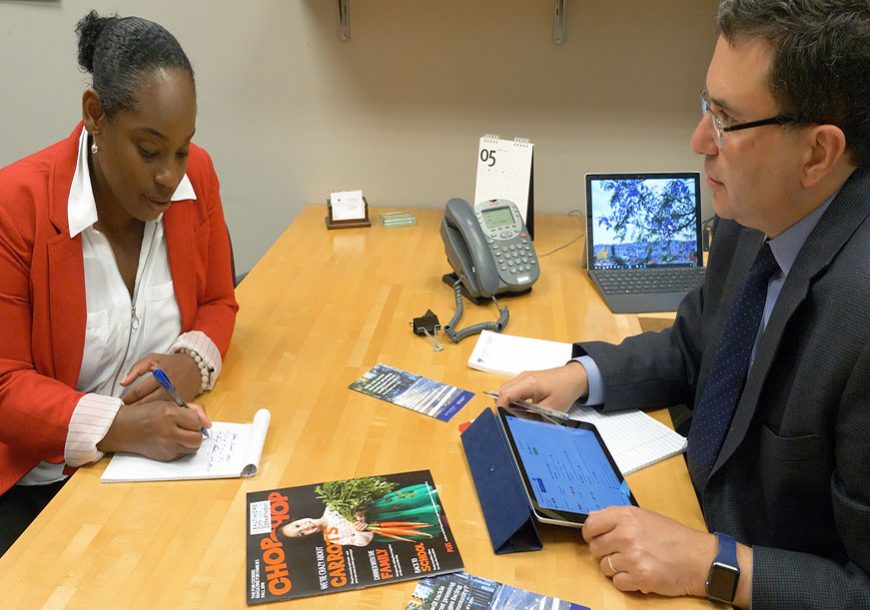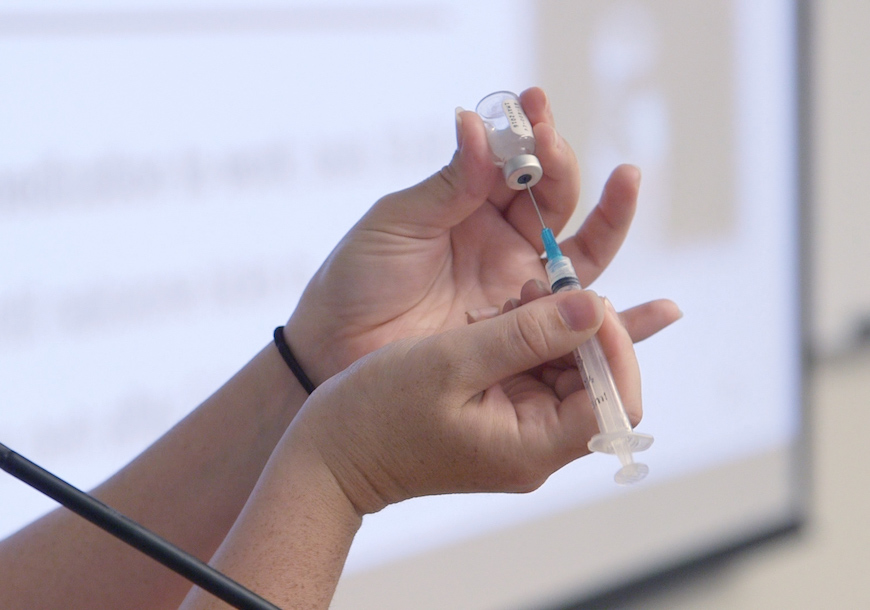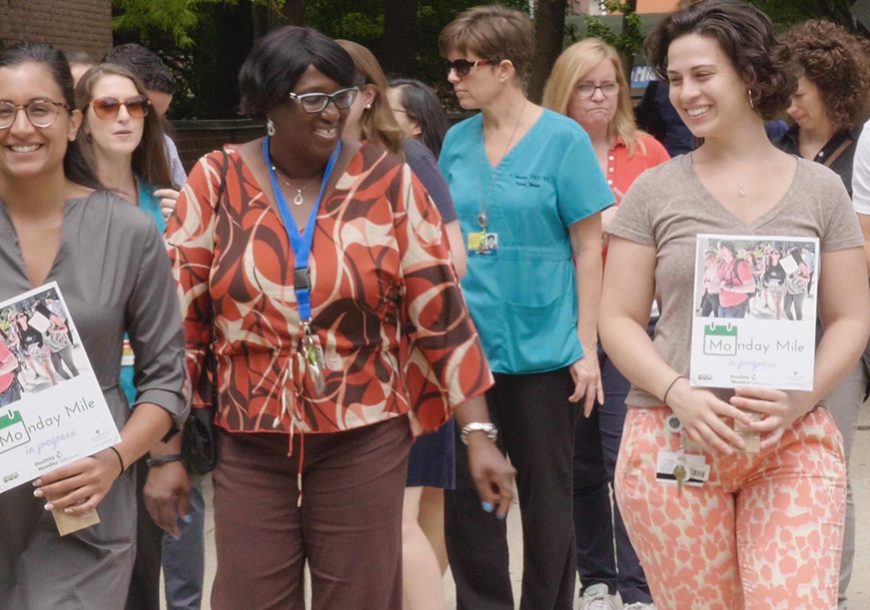Pioneering Public Health

In 2016, Bloomberg Philanthropies, founded by businessman and three-term New York City Mayor Michael R. Bloomberg, celebrated the 100th anniversary of the Bloomberg School of Public Health with a $300 million gift to launch a new public health initiative.
The Bloomberg American Health Initiative, which aims to help reshape the national public health agenda, focuses on five areas affecting public health – drug addiction, obesity, gun violence, adolescent health, and environmental threats.
“People are living longer lives than ever before in history, thanks in no small part to the pioneering public health work done at Johns Hopkins over the last century,” Bloomberg says. “But we can and must do better, starting here in the U.S., where life expectancy is lagging behind much of the developed world. By spreading smart public health strategies that save lives and bringing people together to try new approaches, we can make the same strides in the 21st century against health threats like air pollution, gun violence, and obesity that we did in the 20th century against polio and other infectious diseases. There’s no institution better equipped to lead the charge than Johns Hopkins, and it’s an honor to be able to help launch the school’s next 100 years with this gift.”
Using science and research to help veterans

As many as 20 percent of U.S. soldiers have returned from the last two American wars having suffered a traumatic brain injury. Following a brain injury, there is a release of proteins to help the healing process.
Geneva Foundation Jonas Veterans Healthcare Scholar Tamar Rodney, PhD (Nurs ’18), RN, is examining how those proteins can serve as a predictor for post-traumatic stress disorder.
“What we’ve found is, for individuals who have PTSD, there’s a very high amount of proinflammatory proteins, even long after their traumatic brain injury,” she explains.
Tamar’s research aims to create a simple blood test that could help diagnose individuals who have experienced a traumatic brain injury earlier and predict their risk of developing PTSD.
The ultimate goal? To provide veterans with appropriate treatment.
“They offered to give their life for their country,” Rodney says. “Let’s say, ‘Now that you’re suffering, we can also take care of you.’ And we can do that through science and research.”
Combating the Opioid Crisis

In the United States during 2016, on average 175 people died every day from accidental overdoses from opioid and other illicit and prescription drugs, according to the Centers for Disease Control and Prevention. This amounts to epidemic proportions of approximately 64,000 people annually.
“Everyone is at risk,” according to Meredith Kerr, scholarship recipient and graduate student at the Johns Hopkins School of Nursing. “It could be a family member, a loved one, or yourself. Anybody that’s prescribed opioids is at risk.”
The prevalence of fentanyl — a much stronger, synthetic, less expensive opioid — is also a significant factor in the logarithmic increases in accidental deaths. Fentanyl-related deaths in Maryland increased 400% from 2015 to 2016.
“Dealers are often mixing it into the heroin supply, and a person with a substance use disorder may not know what they are actually injecting,” explains Kerr, who is also a member of the Baltimore Harm Reduction Coalition.
This volunteer-run organization is dedicated to education, advocacy, and community engagement for non-judgmental ways to reduce potentially harmful consequences of human behavior. For example, they advocate for safe drug consumption spaces, work to remove stigmas that might prevent someone from seeking treatment, and disseminate free Naloxone or Narcan kits, which include sterile syringes along with this overdose reversal agent that knocks the opioid off the receptors in the brain, restoring one’s ability to breathe.
Trainings are scheduled regularly at Hopkins, at churches, and with community groups, but can also be impromptu, one-on-one encounters if Kerr or other volunteers cross paths with someone who could benefit.
“Addiction nursing is my passion,” says Kerr, who adds that receiving a scholarship enabled her to attend the top-ranked School of Nursing. “Without that, I wouldn’t be able to get involved in any of the opportunities that are here.”
Having already completed clinical rotations in areas like psychiatry and neuro-epilepsy as part of the Master of Science in Nursing Program, Kerr plans to continue her education after she earns this degree in 2018 and become a nurse practitioner, ultimately working in an outpatient community clinic while still focusing on addiction issues.
“It’s an area that needs a lot more help in Baltimore, and I want to help as many people as I can in my city,” she says.
Encouraging Healthy Behavioral Change

Since its launch in 2014, the Bloomberg School of Public Health’s Lerner Center for Public Health Promotion has focused on developing programs that encourage healthy behavioral change.
“The goal of the Lerner Center for Public Health Promotion is really to equip public health professionals with the tools needed to promote health and prevent chronic diseases,” explains Sara Benjamin Neelon, the Helaine and Sidney Lerner Professor and Director of the Lerner Center for Public Health Promotion in the Bloomberg School of Public Health.
“The Lerner Center has a close relationship with Sid Lerner, our primary donor, and Sid Lerner is a former ad man turned public health advocate,” Neelon says. “He really has been a leader in the field of public health promotion, communications, and health advocacy. So ranging from ‘please don’t squeeze the Charmin’ to Meatless Monday, he is really a leader in public health, and his creativity is inspirational.”
Established with a gift from Sid and Helaine Lerner, longtime friends of the school, the Lerner Center also partners with community organizations to combat public health issues like violence, mental health, and obesity prevention.
“The Lerner Center supports a number of innovative collaborations between faculty at the school and community members, and one is really a collaboration between a Johns-Hopkins school Public Health faculty member and the Community Law Center. And this project looks at alcohol outlets and violence in and around those outlets,” Neelon says.
Some of the center’s initiatives are as simple as taking a midday walk around campus.
“There’s also a national movement to get people physically active on Mondays that Sid Lerner spearheaded called the Monday Mile,” Neelon says. “Even at Hopkins, every Monday, there’s a group of us who walk a mile [at] 1 p.m. … [I]t’s a way to get us out of our offices and more active during the weekday.”